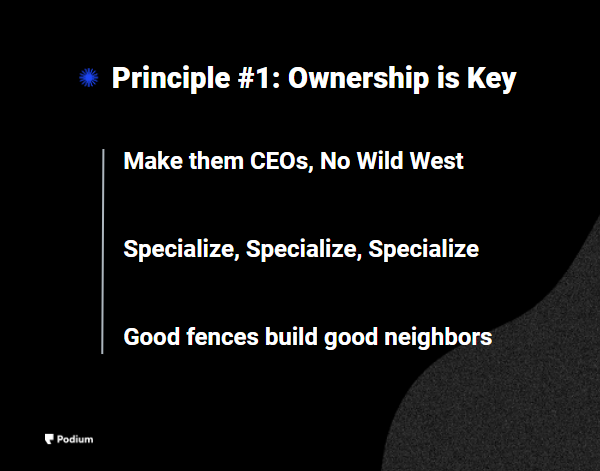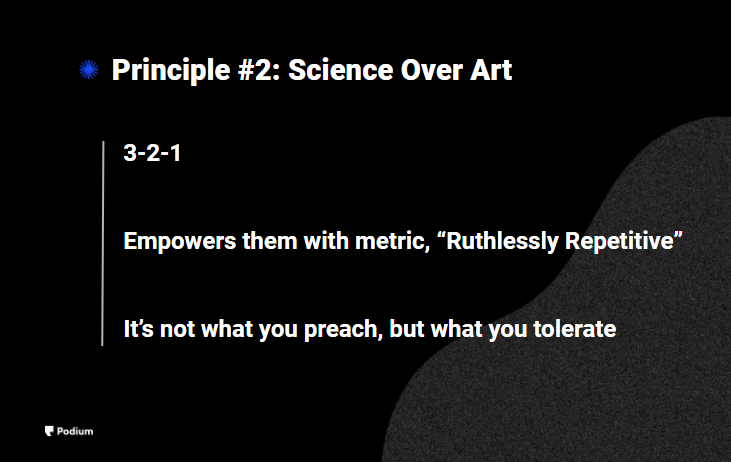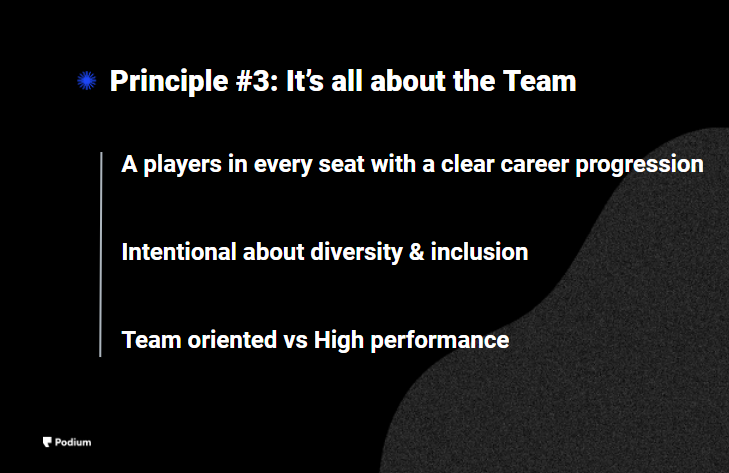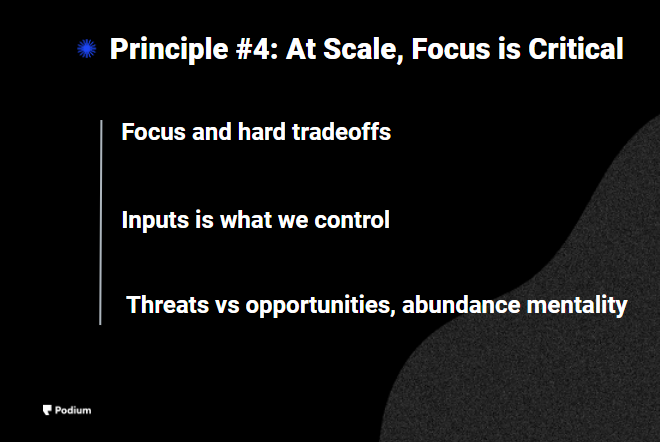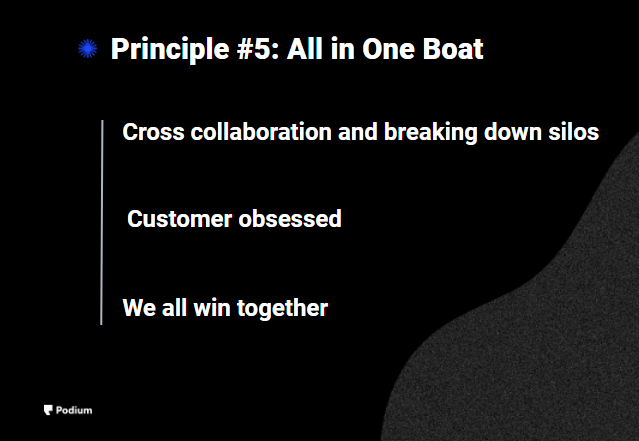What are some of the foundational ways sales leaders can think about building their sales teams as their company continues to expand and grow? There’s no shortage of ways to tackle this challenge, but one thing is clear: build sales teams thoughtfully and intentionally.
Podium sales leaders, EVP of Sales Than Hancock, and Regional Sales Manager Carlie Adams recently led a session on how they’ve grown the team at the cloud-based software company. Podium has grown from a 1 million annual recurring revenue (ARR) company to doing over 100 million in ARR in their time there.
Drawing on a surplus of experience building high-performing sales teams, they share thoughts on growing their team and applying those lessons to other organizations.
Principle #1: Ownership is Key
One common trait of young sales organizations is that they operate under a sort of “Wild West” environment where reps are encouraged to go after any opportunity. This setup can feel most efficient for promoting swiftness of action, but the arrangement proves to be troublesome with time.
“The more you can specialize and focus your team and organization, including your individual sales reps, the greater their chance to succeed.”
Encouraging a deep level of specialization and getting on a granular level on what types of opportunities to target can set your teams up for success. This specificity even means talking reps through who not to sell to.
Setting up this specialized environment can help reps become CEOs of their focus, where they are encouraged to own their vertical, territory, and segment.
Principle #2: Science Over Art
Some sales leaders will question whether they should empower their teams to see sales as more of a science or an art. Podium defines its sales process as about 80% science and 20% art.
“The more predictable you can make the sales process, the more control you and your team ultimately have over the outcome.”
It all comes back to reps controlling what they have the power to control. Individual sales reps who are “ruthlessly repetitive” are more likely to succeed.
At Podium, sales individuals are reminded to aim for the 3-2-1 methodology. On any given day, a rep should schedule 3 appointments, 2 demos, and 1 call they have the opportunity to close for a sale. The formula may vary depending on your organization, but relentless dedication to the process leads to results no matter the formula.
Principle #3: It’s All About the Team
Hiring is an essential point of focus early in a sales organization. Leaders should prioritize bringing in high performers—individuals who will hit the ground running and push your team’s metrics forward.
With scale, though, these priorities can change. Of course, you still want to hire great sellers who will achieve well. But a more crystallized goal also becomes team development, culture, and cooperation.
Leaders will want to avoid skewing too far towards individually-oriented salespeople when it comes to performance vs. orientation. Doing so can impact team development and negatively affect the team as hiring ramps up.
Principle #4: At Scale, Focus is Critical
Individual seller focus and ownership are crucial for setting your sales organization up for defined targets and success. In the same way, the focus of sales leadership will become more tantamount as organizations grow.
Early on, questions of fit come up as you consider the type of customer your sales team needs to target and the types of customers to avoid. With more maturity, some of these decisions can be related to the product and require you to consider which products are offered to make the most sense for different customer segments. And with even more scale, determining whether to sell upstream (enterprise) or downstream (SMB) might prove challenging.
Taking the time to think through these tradeoffs and create focus can only help your sales org scale.
“Every time we’ve focused and made a hard tradeoff, we’ve succeeded.”
Principle #5: All in One Boat
Sales leaders can foster a collaborative, team-oriented organization by highlighting how other company parts set them up for success.
Whether it’s customer success teams onboarding new customers, marketing teams generating qualified leads, the product team quickly implementing product updates, and highlighting these efforts can foster greater collaboration and teamwork in the future.
Ultimately, you want to paint the picture of all company members rowing in one direction, winning together, and enjoying the journey along the way.
Key Takeaways
Scaling a sales team takes extreme discipline and focus. But done right, a sales organization can thrive along with revenue.
Here are some building blocks to draw on when scaling sales teams up:
- Empower your sales team to own their role in the business. As you move ahead, prioritize clear focus at all levels—from individual sales reps to team leaders.
- Make sure your teams know what metrics they need to hit to win.
- Strive for team contributors that uplift your sales team culture, and regulate the reciprocity between sales and other vital components of the company.


